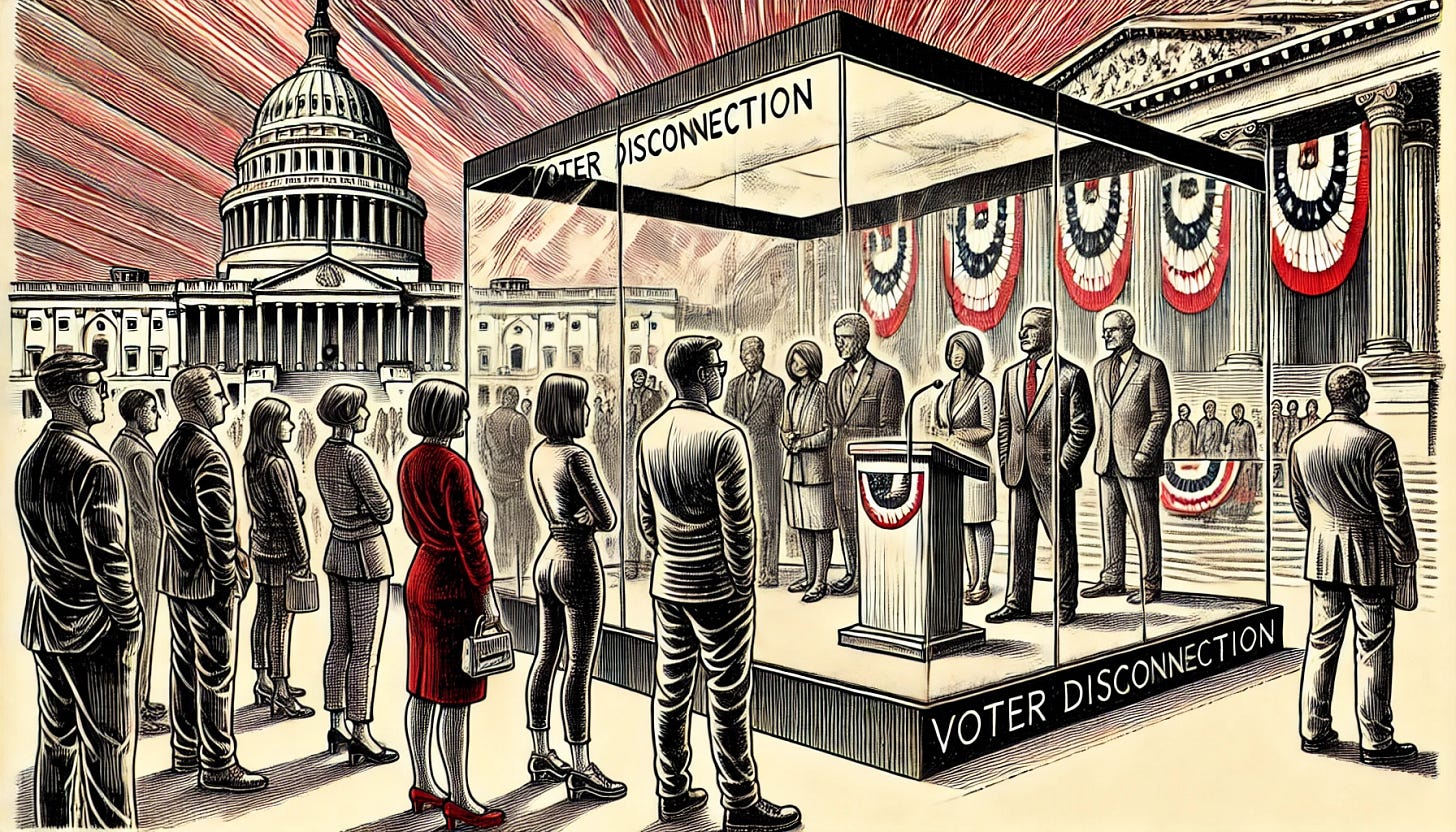TNC Case Study: Voters Feel Disconnected from the Political Party System ©2025
Disconnection has serious consequences for participation, representation, and policy outcomes
In modern politics, voter disengagement is often framed as apathy, but the reality is far more complex. Many Americans feel detached from political identity and history due to systemic gaps in education, shifting party ideologies, and the erosion of civic trust. As political landscapes change, generations struggle to see where they fit in the larger democratic process. This disconnection has serious consequences for participation, representation, and policy outcomes.
The Roots of Political Disconnection
Voter disengagement does not happen overnight. It is the result of deep structural and cultural shifts that have made political identity more confusing and history less accessible. Some of the key reasons for this disconnection include:
Weak Civic Education
One of the primary reasons voters feel disconnected from politics is the decline in civic education. Many schools have reduced or eliminated robust history and government curricula, leaving students with only a surface-level understanding of how political systems work.
Party Evolution Without Rebranding
Political parties in the U.S. have undergone significant ideological shifts over time, but these changes are rarely communicated in a way that helps voters understand them.
Polarization and Identity Politics
While politics has always had divisions, today’s political climate is more polarized than ever, making it difficult for voters to find a place that feels authentic.
Erosion of Trust in Institutions
Trust in government, media, and political institutions has been steadily declining, further disconnecting voters from political identity.
Consequences of Political Disconnection
The effects of voter disconnection are not just theoretical; they have real-world implications for democracy.
Low Voter Turnout
Trust in government, media, and political institutions has been steadily declining, further disconnecting voters from political identity.
One of the most visible consequences of political disconnection is low voter participation. If people do not feel represented or connected to political history, they are less likely to vote.
Increased Susceptibility to Misinformation
When people lack historical and political context, they become more vulnerable to misinformation and propaganda.
Subscribed
Weakening of Collective Action
Historically, social and political movements have been driven by a strong sense of shared identity and historical continuity. When voters feel disconnected, organizing and activism become more difficult.
Rebuilding Connection to Political Identity and History
Addressing political disconnection requires systemic change, educational reform, and new approaches to engagement.
Strengthening Civic Education
A renewed focus on civic education can help bridge the knowledge gap and empower future voters.
Transparent Political Messaging
Political parties must be more intentional in communicating their ideological shifts and core values.
Digital Engagement with Historical Context
Social media and digital platforms should incorporate historical context when discussing political issues.
Restoring Trust Through Accountability
Institutions must take active steps to restore public trust.
Expanding Political Identity Beyond Parties
Encouraging voters to see themselves as active participants in democracy, rather than just members of a political party, can help bridge the disconnect.
The crisis of political disconnection is not inevitable—it is the result of systemic failures that can be addressed. By strengthening civic education, embracing transparent political communication, leveraging digital engagement, and rebuilding trust, we can reconnect voters with political identity and history.
The TNC Case Study serves as a model for examining and addressing these challenges. By analyzing the gaps in political engagement and developing new strategies, participants can play a role in shaping the future of democratic participation.
How do you think we can reconnect voters to political history and identity?
Start Here: How it works


